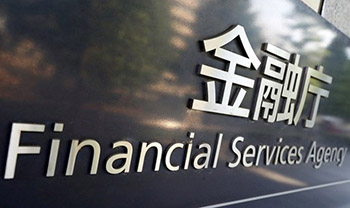Japan strengthens legal regulation of crypto-currency
The recent scandal over the hacking of a private crypto-currency exchange Zaif has caused the intervention of the associative group

According to the Japanese edition of The Japan Times, in the nearest future, the self-regulating Association of Virtual Assets Exchanges intends to limit the amount of funds stored in the form of crypto-currency on the exchange wallets. We are talking about limiting the amounts stored on hot wallets; it is planned to reduce the amount to 10-20% of the total funds, the rest will remain cold wallets. Such a change is possible after approval by the official regulator, the Financial Services Agency.
In addition, the changes will affect the general provisions of crypto-currency regulation, with regard to the ability to set trading limits to certain categories of users: the ratio of marginal trading with leverage in the value of 1 to 4.
Let us remind you that on September 20, 2018, the Zaif crypto-curreny excange was hacked, as a result of which more than half of user assets equivalent to $ 60 million were withdrawn in a fraudulent way from the stock exchange wallets. Such a fraud became possible due to the wrong actions by Zaif - all assets were located on a hot wallet. The public learned about the details of the hack a week later after the alleged actions.
Earlier, the Japanese crypto-currency exchange Coinchek was subjected to similar hacking. The attackers withdrew funds in the amount of more than $ 533 million. According to experts, the probable reason was the refusal of the exchange to use NEM of a smart contract with a multisign function.
As a rule, it is impossible to return technically stolen, since the withdrawal is accompanied by mixing with the «white» currency, as a result, despite the blockchain's transparency, it is impossible to track further transactions. The affected company can return the withdrawn funds only from its own funds.
According to the specialists, among the methods used in such schemes, in addition to the attack on hot wallets, there are attacks on personnel leading to access to user credentials, as well as hacking and infection of the founders' accounts with virus programs.
According to representatives of the affected companies, there are sufficient financial resources to eliminate the consequences, which management intends to transfer to the accounts of affected users.
The tendency of the Japanese Association of Digital Products Counterparties is aimed at obtaining the official status of a self-regulatory agent in the area of financial estimate.
The incidents, which have taken place, underline the vulnerability of the Japanese stock exchanges aimed at developing the economy at the expense of the technology sector, against the background of the aspiration in various countries to find more optimal surveillance mechanisms that exclude such risks.
In this direction, the Financial Services Agency strengthened the requirements for financial services operators, obliging them to undergo mandatory state registration, and also to comply with the following requirements:
- It is forbidden to store cloud assets on computers connected to the Internet,
- To identify the clients who are carrying out large transfers,
- To check customer account balances several times a day,
- The operation of crypto-currency with a high level of confidentiality is prohibited ,
- To exclude the possibility of manipulating the staff and management of the stock exchanges for their own benefit.
The tightened policy of Japan led to some outflow of crypto-currency exchanges from its own jurisdiction, however, the authorities intention to protect the users' property causes positive feedback from specialists.
Our company is closely monitoring changes in the legal regulation of crypto-currency exchanges around the world. We are ready to give a detailed assessment of the legal and technical security of your assets located in any jurisdiction.





























































